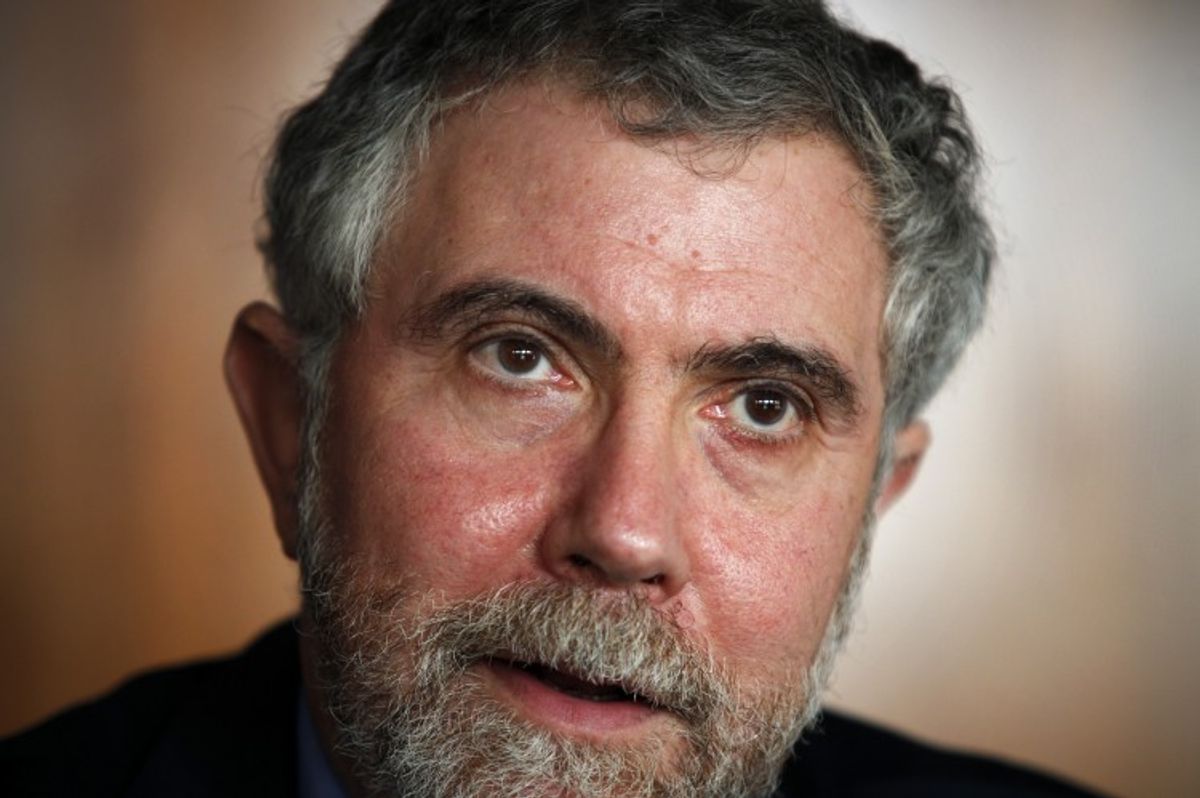The U.S. unemployment rate may have just dipped below six percent for the first time in more than six years, but don’t be fooled: the world economy is still mired in a halting recovery, and new data showing dangerously low inflation indicate that all isn’t well on American shores, either.
So observes economist Paul Krugman in his latest column for the New York Times. Given that it’s been more than six years since the Great Recession brought the global economy to its knees, it’s fair to ask why the specter of another downtown seems always to loom on the horizon. And Krugman has his answer: we’re being too virtuous.
“Righteousness is killing the economy,” the Nobel Prize winner writes.
Explaining how we got to this point requires a bit of history. In the run-up to the Great Recession, Krugman says, the global economy witnessed an “explosion of credit” in which “[o]ld notions of prudence … were cast aside.” Debt skyrocketed.
After the reckoning, credit tightened and individuals and businesses worked assiduously to decrease their debt. The problem? “[M]y spending is your income and your spending is my income,” Krugman explains, “so when everyone tries to pay down debt at the same time, you get a depressed economy.”
The right response, Krugman argues, is some form of “writing off and forgiving much of that debt,” as when the FDR administration helped homeowners refinance their mortgages and as Iceland is doing now with many of its citizens’ household debt. Another form of debt relief comes simply through government keeping interest rates low and inflation “erod[ing] the real value of debt.”
But, Krugman laments, policymakers are treating economics as a morality play, and they’re not offering households the debt relief necessary to get the global economy moving again. He cites European policymakers’ obsession with austerity and the Tea Party’s reflexive opposition to relief for indebted individuals like homeowners who are underwater on their mortgages. Both phenomena are borne of a sense of righteousness, Krugman writes.
The result of this excess of virtue, he concludes, has been economic policy that “doesn’t work”:
So the policy response to a crisis of excessive debt has, in effect, been a demand that debtors pay off their debts in full. What does history say about that strategy? That’s easy: It doesn’t work. Whatever progress debtors make through suffering and saving is more than offset through depression and deflation. That is, for example, what happened to Britain after World War I, when it tried to pay off its debt with huge budget surpluses while returning to the gold standard: Despite years of sacrifice, it made almost no progress in bringing down the ratio of debt to G.D.P.
And that’s what is happening now. A recent comprehensive report on debt is titled “Deleveraging, what deleveraging?”; despite private cutbacks and public austerity, debt levels are rising thanks to poor economic performance. And we are arguably no closer to escaping our debt trap than we were five years ago.
But it has been very hard to get either the policy elite or the public to understand that sometimes debt relief is in everyone’s interest. Instead, the response to poor economic performance has essentially been that the beatings will continue until morale improves.
Maybe, just maybe, bad news — say, a recession in Germany — will finally bring an end to this destructive reign of virtue. But don’t count on it.

Shares